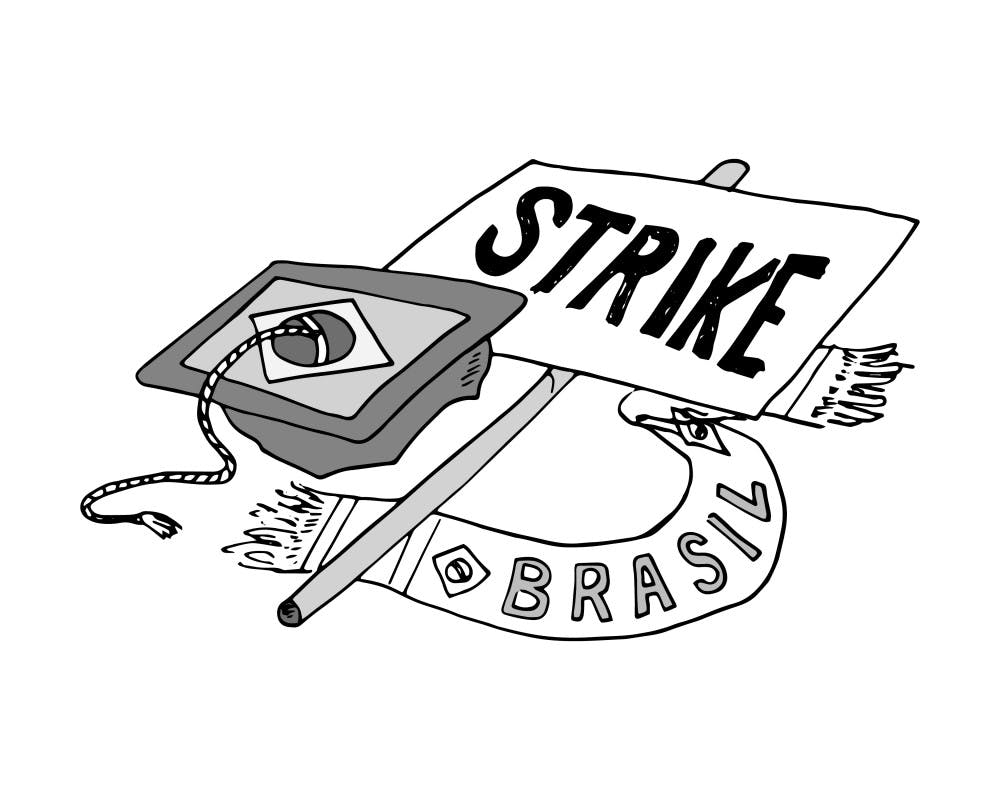As Brazil’s economy plunges deeper into a crisis, students have occupied schools throughout the country to fight proposed cuts in education spending.
The government of President Michel Temer is desperate to pull South America’s largest economy out of its worst recession in 25 years, but when austerity measures gutting the country’s education, pension and health care programs were announced, millions took to the streets in resistance. Though protests by the country’s trade unions were unsurprising, the takeover of the nation’s schools in early October took Temer’s government by surprise.
The youth, once considered politically inactive in Brazil, have turned the occupation into a triumph of collective action. Students are now running their own classes, library and lunch program, and all signs show that the students plan to hold out indefinitely. “You learn more about politics in a week of occupying a school than in years of regular classes,” said one 19-year old student. “Now young people know they can force change.”
In 2010, Brazil seemed unfazed by the global recession, with a growth rate that year of 7.5 percent. Then-President Dilma Rousseff of the Worker’s Party enjoyed a high level of popularity, and Brazil was set to be the first South American country to host the Olympic Games.
Yet, the arrival of the Olympics to Brazil marked the beginning of the trouble. The economy shrank 3.8 percent in 2015 and corruption was running rampant throughout the entire government. A bribery scandal at the state-run oil company Petrobas had sunk Rousseff’s presidency, and in March of 2016, her approval ratings were at 10 percent.
The Brazilian parliament then impeached Rousseff, and when the even more corrupt Temer took office, many viewed him as an illegitimate president and a pawn of the United States.
When diplomatic cables published by WikiLeaks showed Temer was a long-time informant for U.S. intelligence, this view was solidified. Many Brazilians now view Rousseff’s ouster as an undemocratic coup.
Since taking power, Temer’s government has proven to be magnificently corrupt. Last week, it was revealed that Temer himself had tried to push a construction project that one of his close allies would have profited from. The opposition is now discussing potential impeachment.
Considering the corruption at the heart of Brazilian politics, the anger of the country’s students is even more justifiable. Too often is necessary social spending first on the chopping block whenever a government must save itself from its own malfeasance. Experts say that Brazil’s spending on the Rio Olympics could top $20 billion.
This wild amount of spending undoubtedly fueled the country’s budget crisis. In the days before the games, Rio police were going unpaid for weeks at a time, and 20 percent of Rio’s population lived in dilapidated favelas. Couple this with the fact most of Rio’s Olympic facilities are now completely deserted, and popular resistance becomes a certainty.
The struggle of Brazil’s students should seem an all too familiar one. Since the Great Recession, governments have increasingly engaged in damaging austerity cuts, choosing to have their population foot the bills so those that wield financial and political power don’t have to sacrifice.
Ours is a system that privatizes profit and socializes risk. At the first sign of an economic downturn, politicians instinctually decide to make the people pay. This achieves two things: it diminishes the economic security of the population and gives private industry an unlimited supply of tax dollars.
The students of Brazil need to fight on. We all need to whenever we are threatened with unfair austerity measures.




